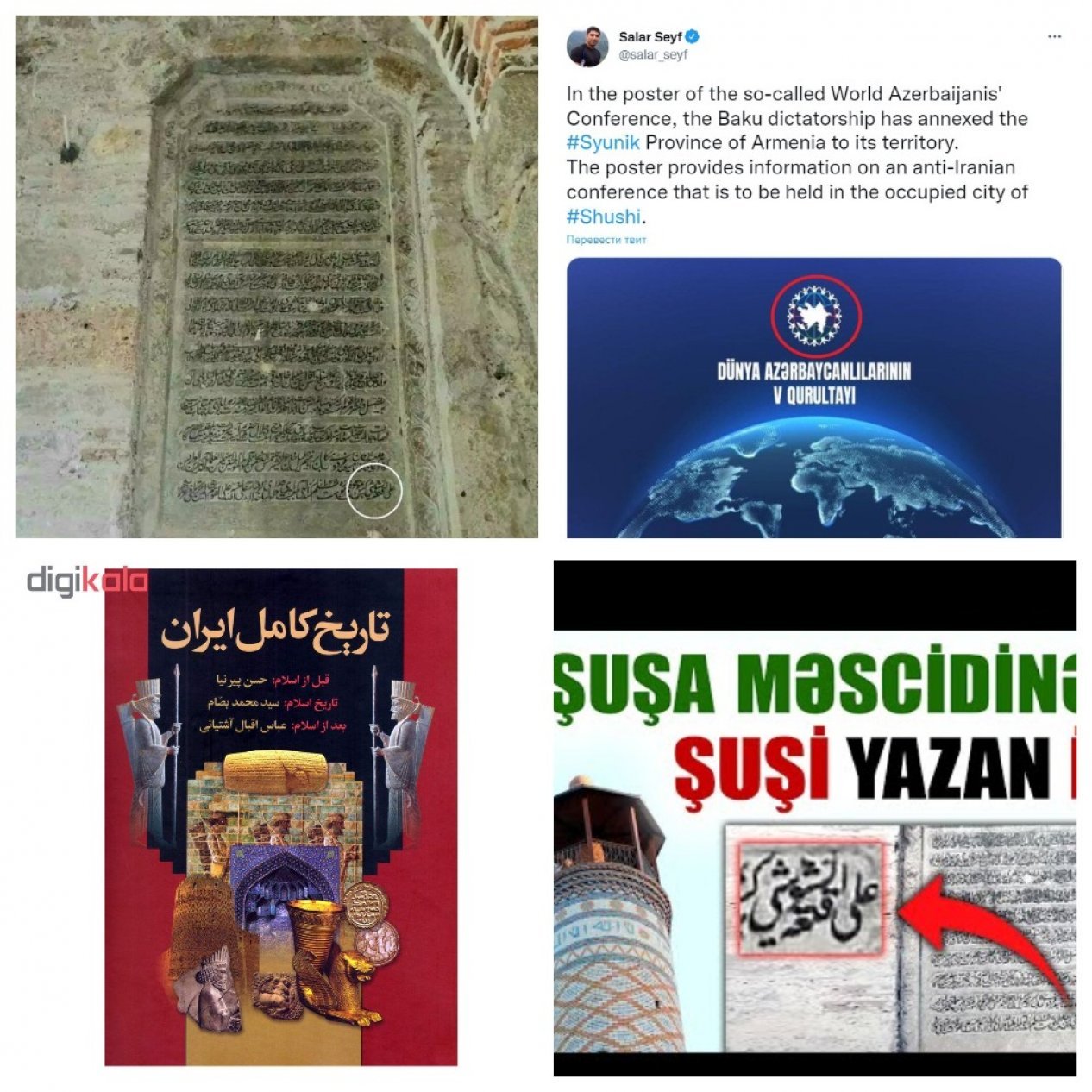
After the Second Karabakh War, many Iranian websites and sources call the ancient city of Azerbaijan, the pearl of the Caucasus, the city of Shusha, “Shushi” as Armenian one. One such distorted name of an ancient Azerbaijani city was mentioned two days ago by an Iranian journalist named Salar Seyfeddin (his nationality is not known, he hides whether he is Persian or Armenian - ed.). He wrote a provocative tweet about the V Congress of World Azerbaijanis, which will be held in Shusha.
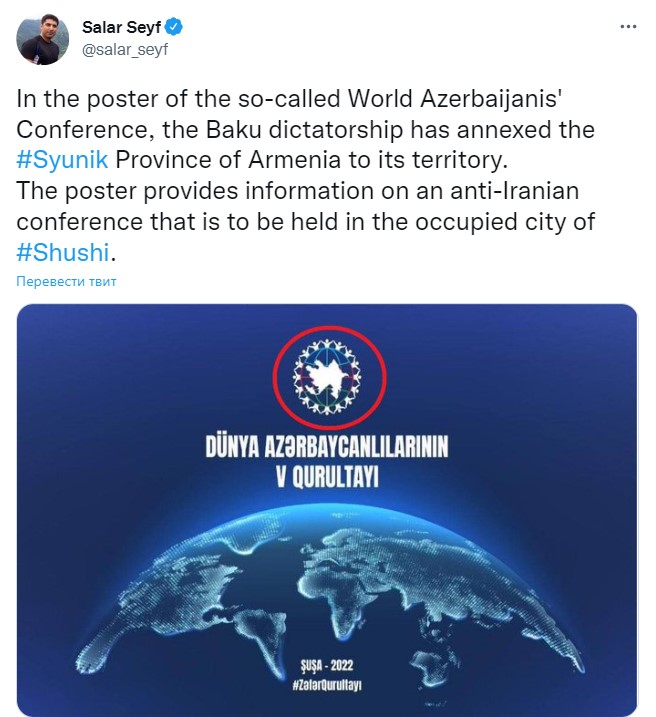
First of all, the Congress of World Azerbaijanis is an event that discusses issues related to further strengthening the ties of Azerbaijanis living abroad with the independent Republic of Azerbaijan, ensuring the unity and cohesion of Azerbaijanis around the world. The congress does not declare political views, does not covet the territory of other states, and rejects separatism.
Secondly, the place called "Syunik region" of Armenia (originally Zangazur) is the historical land of Azerbaijan. There are enough sources about this. It was only in 1923 that the former Soviet leadership presented a gift to Armenia, which later became a factor in inciting discord in the region and which severed Azerbaijan's ties with Nakhchivan. Azerbaijani Turks lived in these territories until 1988, after which they were deported. The bitter consequences of the genocide committed in Zangazur and the policy of "ethnic cleansing" continue today. The accession of Zangazur to Azerbaijan in the coat of arms on the poster is complete nonsense.
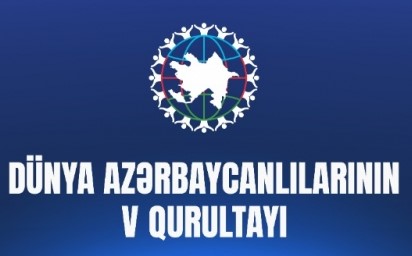
Let’s note right away that Salar Seyfeddin, who introduces himself as an Iranian journalist, has so far written several provocative tweets against Azerbaijan.
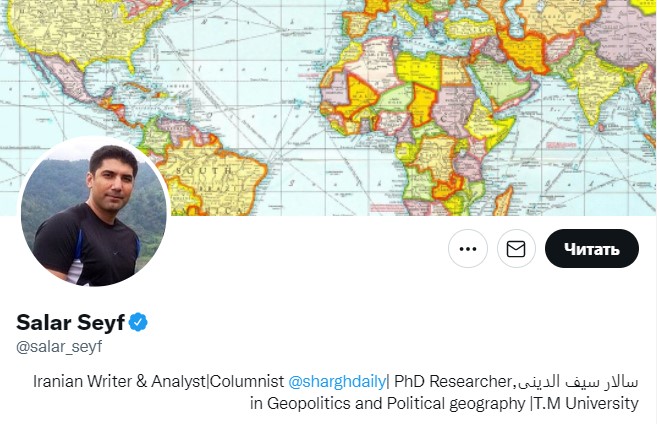
His interview in the Iranian newspaper Sharg, which he took (in 2017) with the "official representative" of the criminal regime entrenched in Khankendi, Mais Mailyan, is openly provocative and separatist.
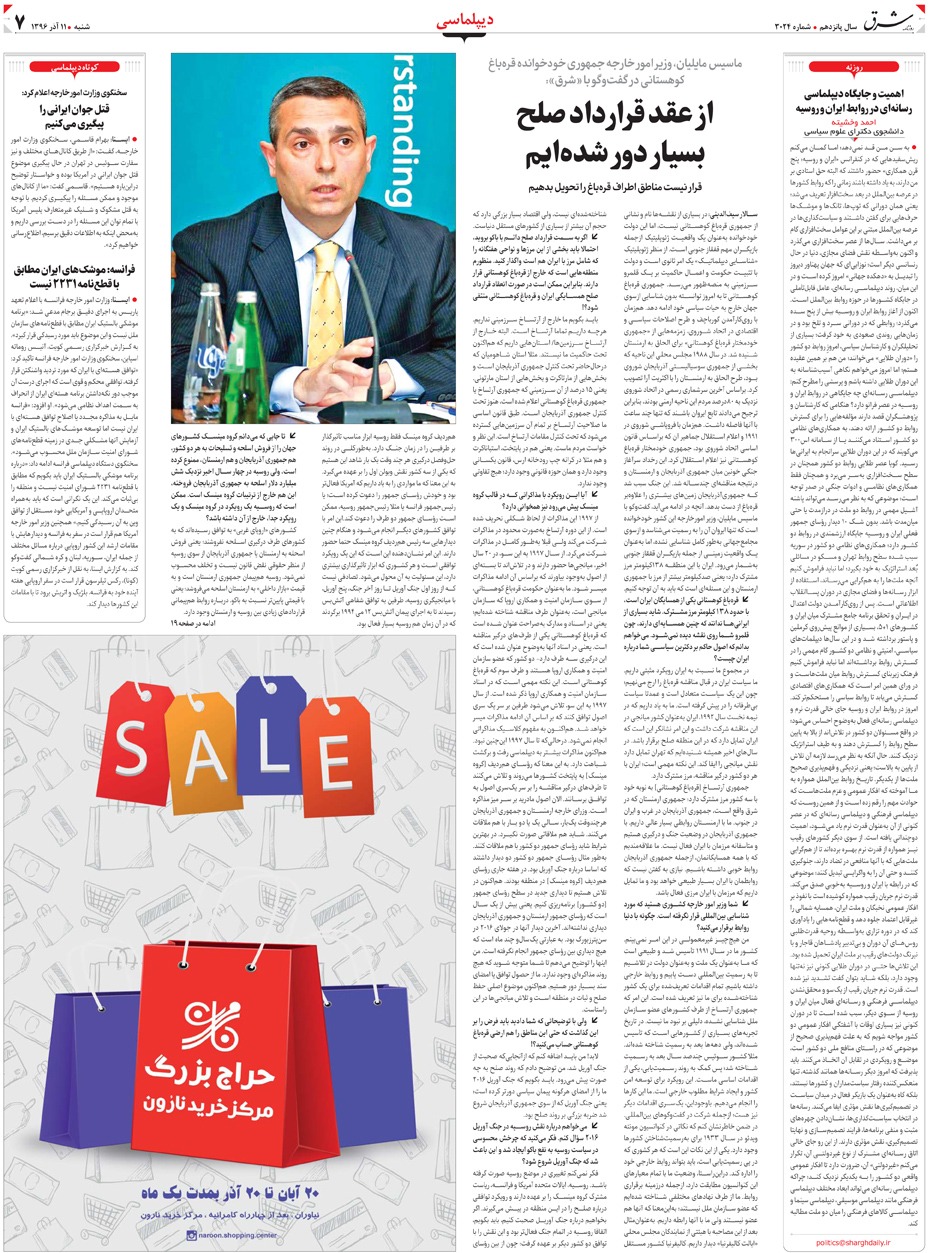
In an interview with the so-called "foreign minister" of the separatist regime at that time, the occupied territories of Azerbaijan are presented as an independent country, they say that these territories are important for Iran, and direct Khankendi-Tehran relations are mentioned. However, this provocation of Salar Seyfeddin was severely suppressed in the Iranian media and he was urged not to incite discord between Iran and Azerbaijan. (Source)
About another provocation by Salar Seyfeddin.
Last year, the Tehran city council (Shorai Shahre Tehran) decided to rename 38 parks and streets in the Iranian capital. Information about the decision is posted on the official website of the Council. According to decision No. 2710-127, Panakh alley will henceforth be called "Nardaran alley". The city council's decision states: "Nardaran is a village not far from Baku, the birthplace of Taleh Bagirzade, who studied in Iran."
Maryam Street in the city was called "Shushi". Not Shusha, but Shushi.
The city council of Tehran not only named the city of Shusha, liberated from the Armenian occupation, in the Armenian way, but also stated that “the Shah of Iran Agha Mohammad Shah Ghajar was treacherously killed in this city.
Journalist Salar Seyfeddin wrote on his Twitter account: “It is important to change street names because it shows that cities and places belong to Iranian culture. I hope they don't change their mind in the coming days if they are pressured by the city council."
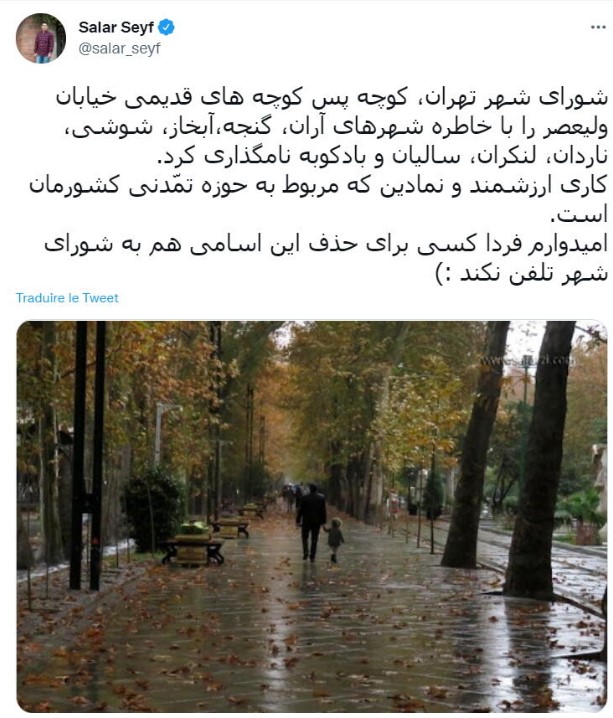
And now let’s talk about "Shushi", which is exaggerated not only by Salar Seyfeddin, but also by other Persian and Armenian sources.
Salar Seyfeddin is not alone in this matter. Armen Shahbazyan of the BBC and Anush Ghavalyan, a separatist journalist based in Khakendi, are also active in this issue.
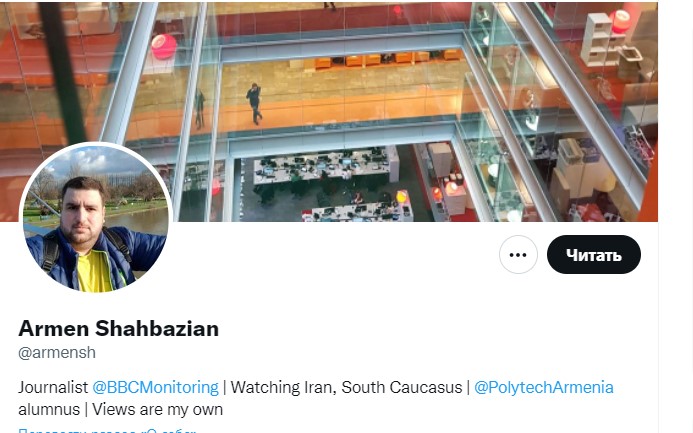

Let’s now consider the arguments put forward by Iranian and Armenian journalists in favor of calling the city of Shusha by the name "Shushi". Salar Seyfeddin publishes an inscription made in the Govhar Agha mosque in Shusha and marks the place where "Shushi" is written.
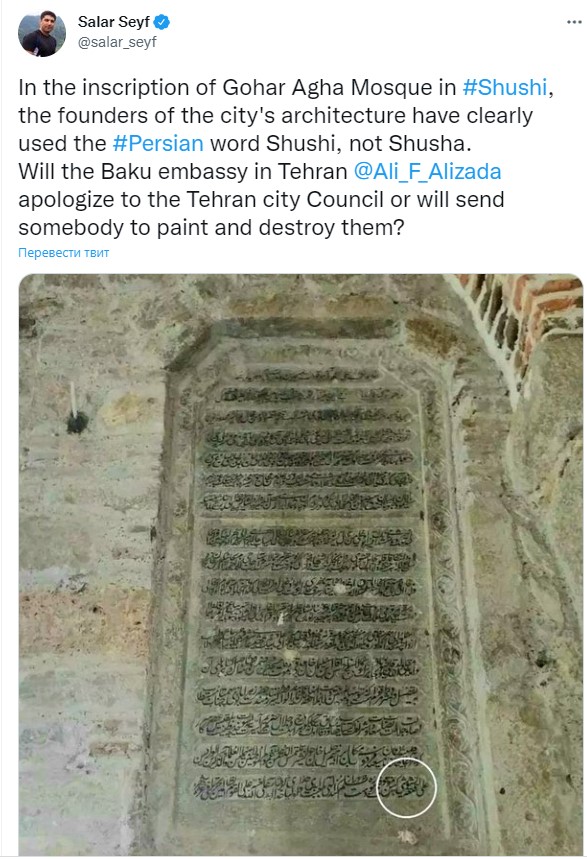
However, the tweet does not say that the mosque was reconstructed (in 2019) by Armenian and Iranian specialists during the occupation of Karabakh and the city of Shusha. We bring this information to the attention of the Iranian journalist. For some reason, no one talks about what changes there have occurred since this "update". Those interested can read this information: (Source)
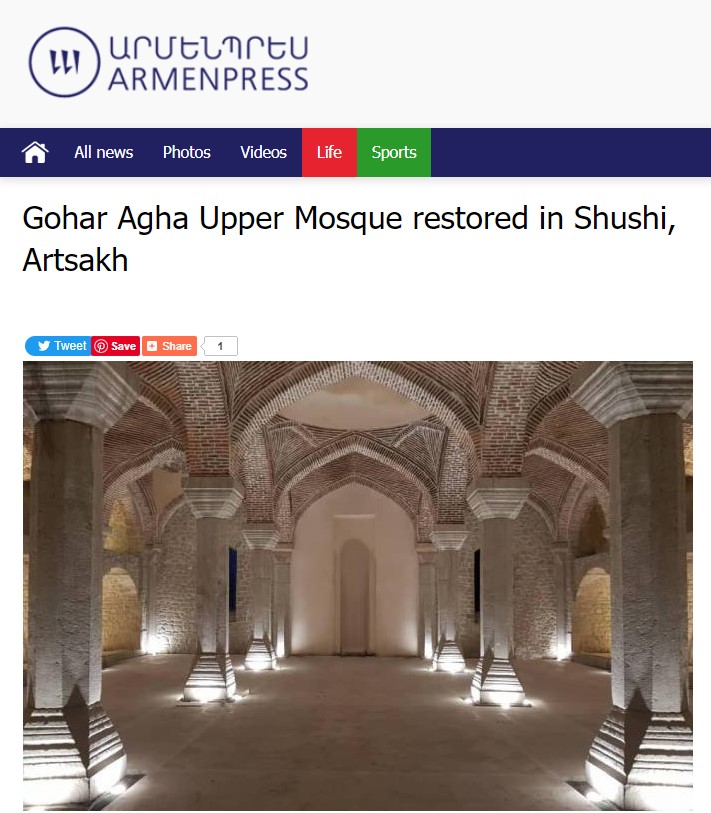
This mosque was built in 1885 by Karbalayi Safikhan Karabakhi.
The struggle of Iranian and Armenian journalists for presenting the name of Shusha as "Shushi" does not end there, and their baseless arguments are exposed one after another.
Let's pay attention:
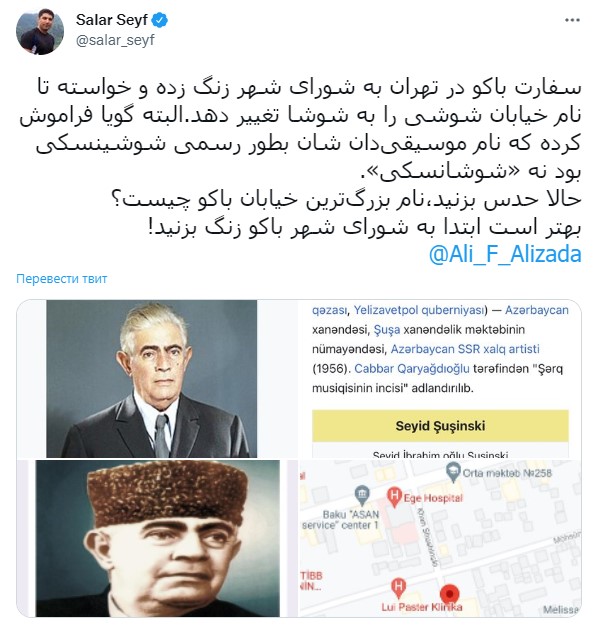
Salar Seyfeddin, citing the surname of the famous Azerbaijani singer from the city of Shusha, Seyid Shushinsky, says that the name of the city from ancient times was “Shushi”, not Shusha. Armen Shahbazyan immediately tries to take advantage of this opportunity.
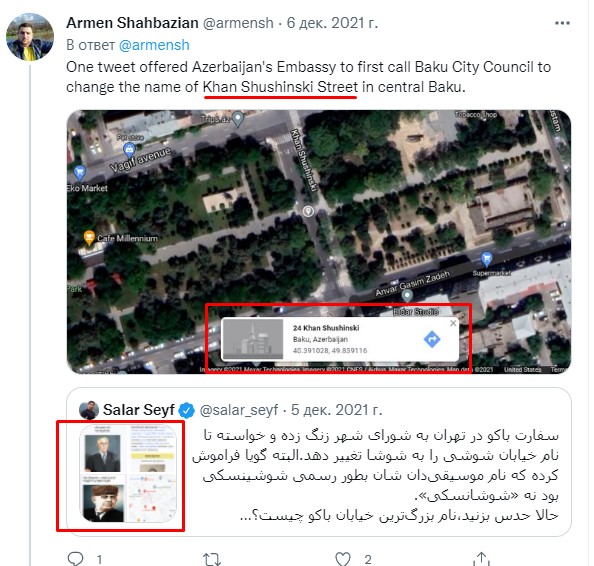
You need to know the rules for changing nouns in Russian grammar. On the other hand, according to the suffix "inskiy / -inski" it is taken like this: "Shushinskiy/Shushinski".
On the other hand, in Russian, there are cases of nouns. One of them is genitive case. In the genitive case, which answers the questions "whom? what?" the word "Shusha" is pronounced as "Shushi". Accordingly, several examples of Azerbaijani toponyms can be given. Ganja-Ganjinski, Barda-Bardinski, Julfa-Julfinski, etc.
The experts also clarified why the word Shusha in Persian sources sounds like Shushi.
In Arabic, many words ending in "A" are spelled with "ی" but are pronounced "ا". For example, "مصطفی", "musi", "عیسی", is read as "Mustafa". Just like "Moses" and "Jesus". Or, for example, مسجدالأقصی, which reads like this: Al-Aqsa Mosque. In addition, the "city of Bukhara" in Uzbekistan is spelled the same, but read differently.
In a correspondence with Salar Seyfeddin, Khankendi-based separatist journalist Anush Ghavalyan asks, “What does Shusha mean in Persian?” which fascinates both Armenian and Persian sources. The Iranian journalist replies: "Shusha means glass."
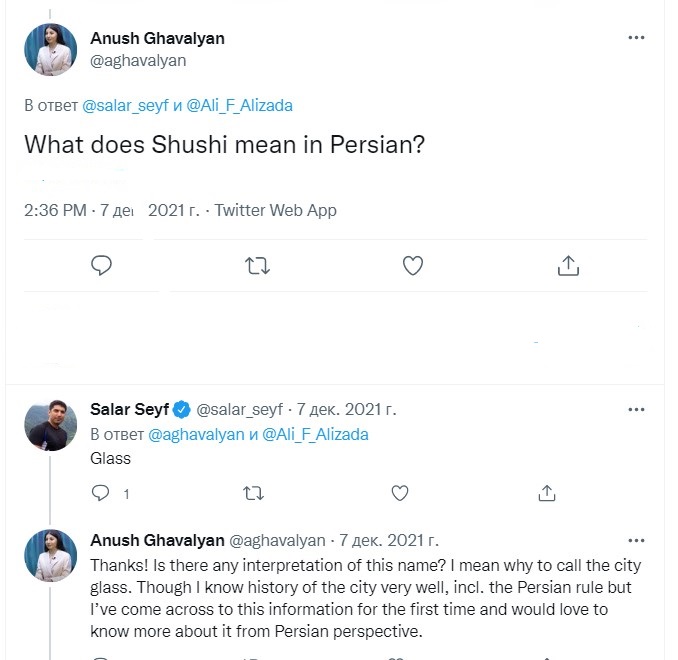
Finally, our argument against the presentation of Shusha as "Shushi."
The name Shusha appears many times in the 17th chapter of the book "A Perfect History of Iran" which is dedicated to the Ghajar dynasty, co-authored by Hassan Pirnia, Seyyid Mohammad Bessam and Abbas Iqbal Ashtiani, which is considered one of the most important history books in Iran:
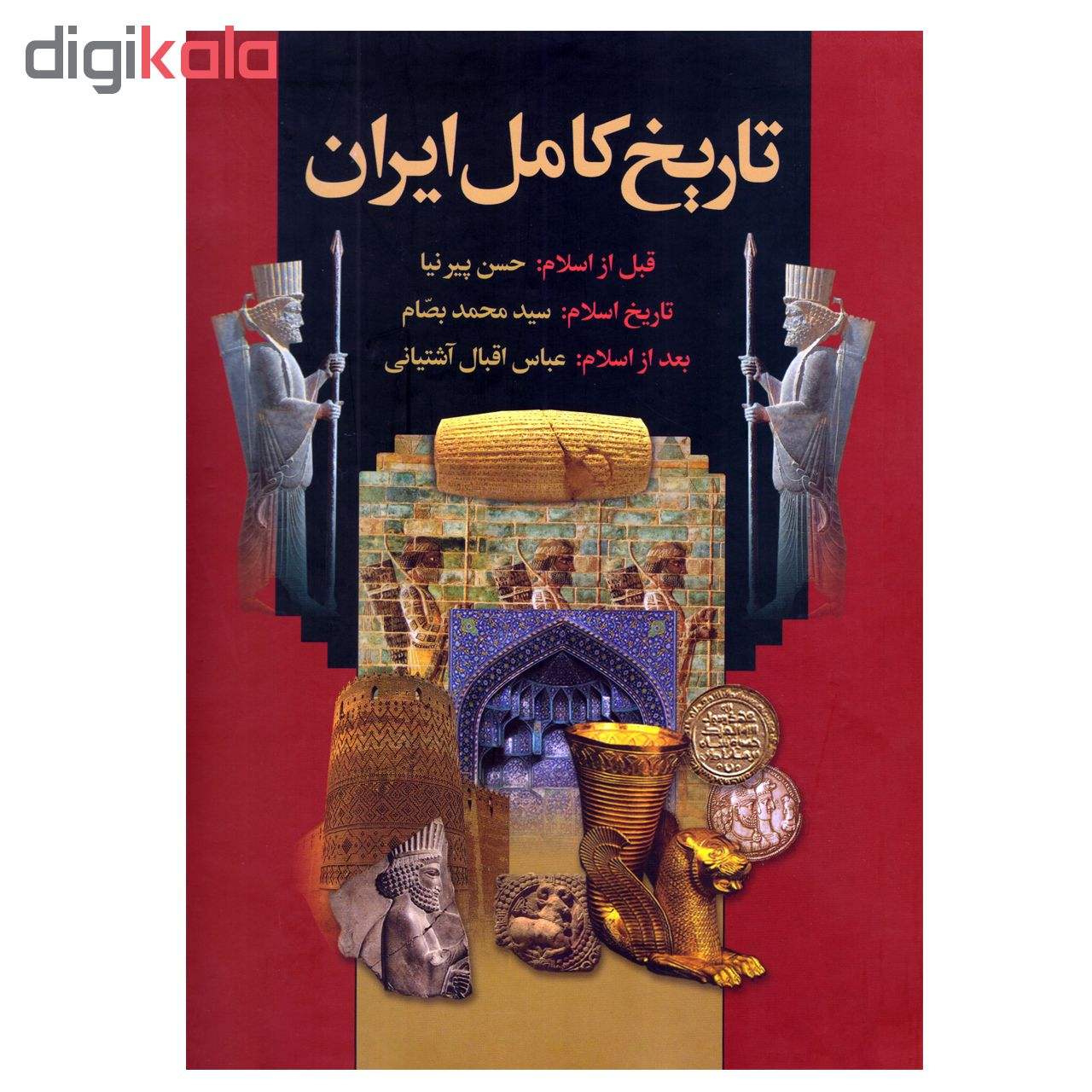
“Agamahammad Shah Gajar in the spring of 1209, (the Hijri year), crossed the Khudafar bridge, located on the Araz River, began moving along the road leading from Ardabil to Shusha in the direction of Azerbaijan, and laid siege to the city with a 60,000-strong army. The ruler of Shusha, Ibrahimkhalil Khan Javanshir, offered strong resistance, and as the siege dragged on, Agamahammad Khan stopped the siege of the city and attacked Tbilisi. (Invasion of Georgia in 1209-1210, p. 952).
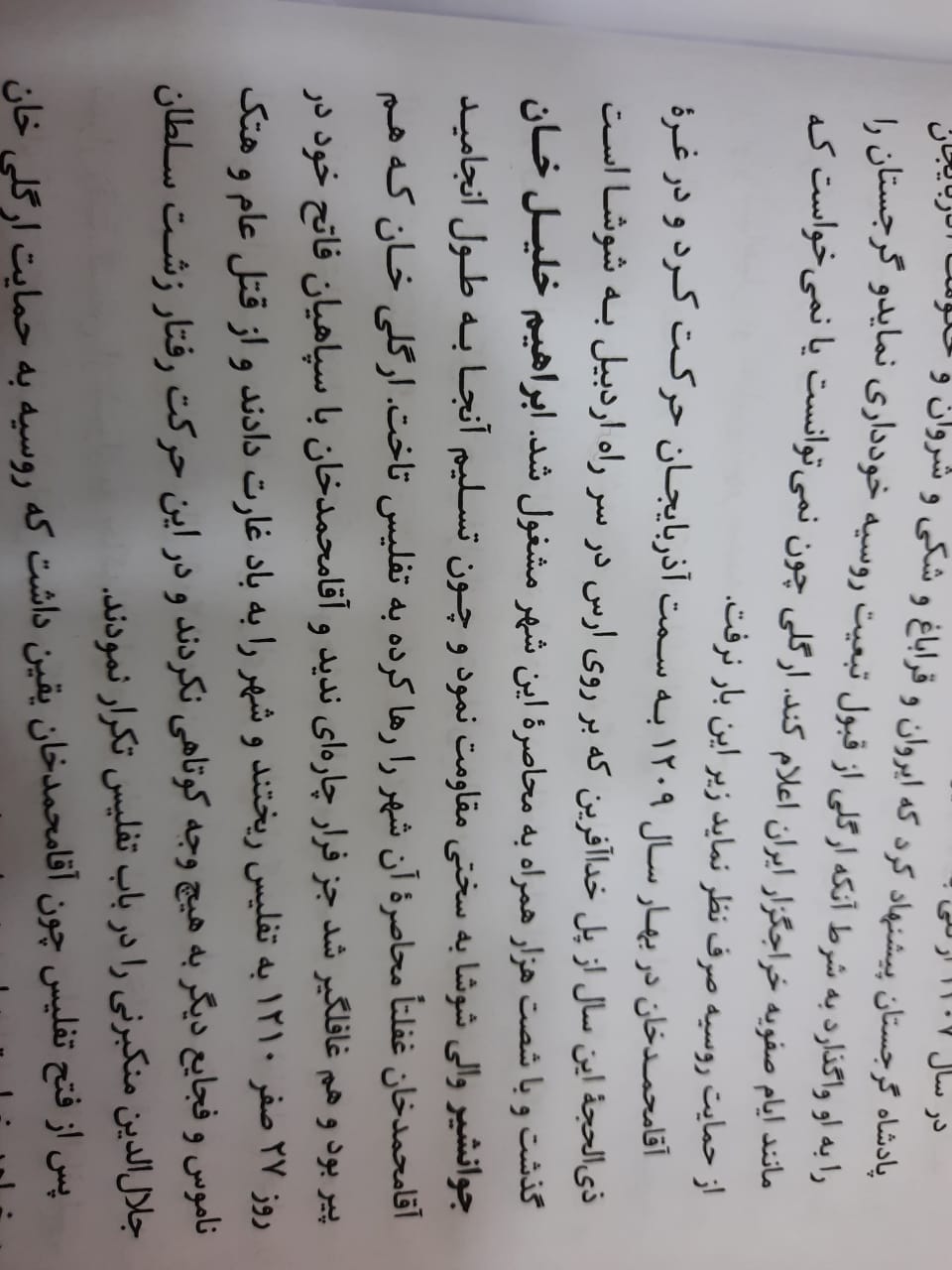
“When Agamahammad Shah captured one of the fortresses of Shusha and Ibrahimkhalil Khan retreated to Dagestan, he became angry with his three servants for an insignificant reason and said that he would kill them...”
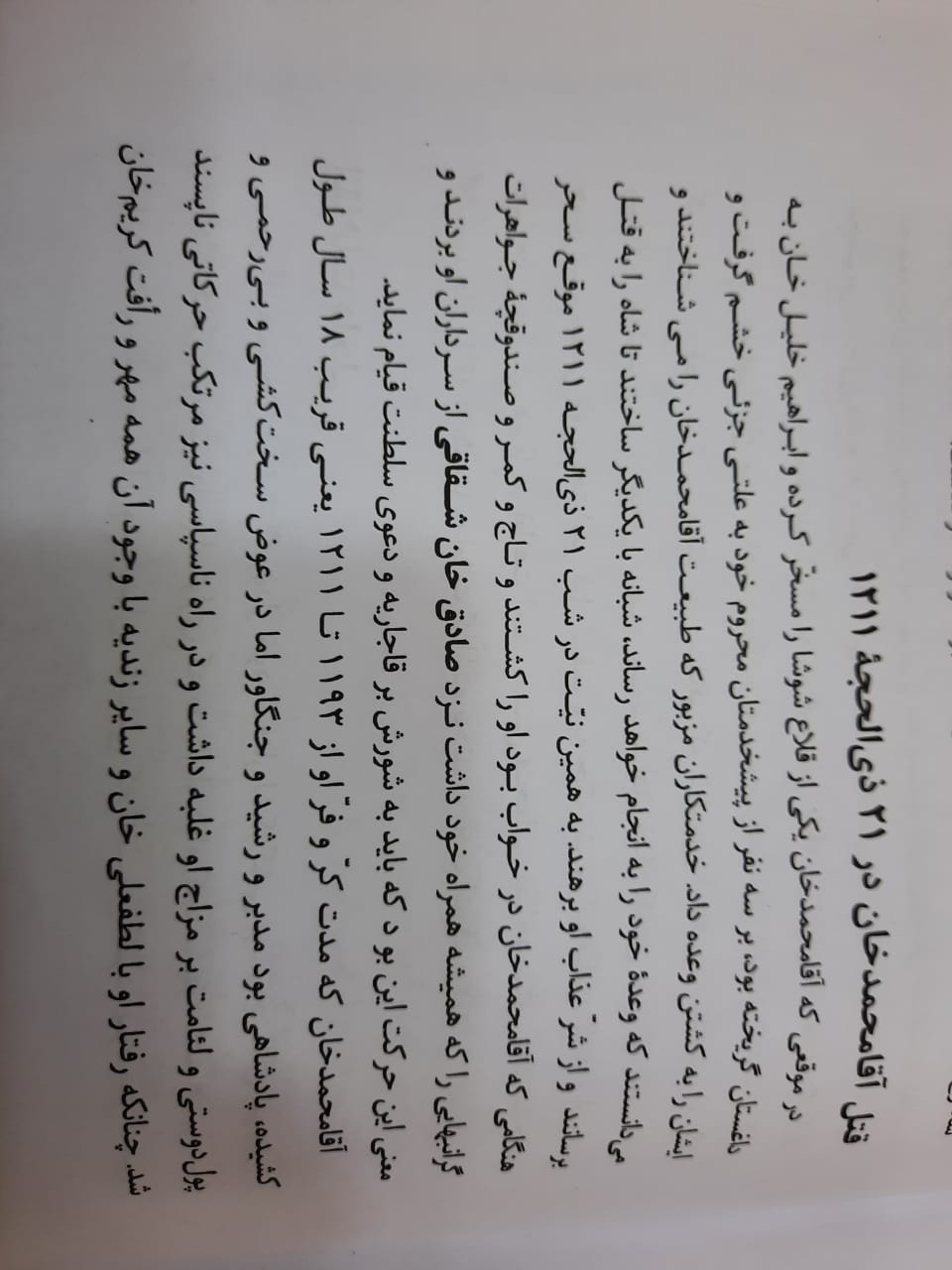
These are just a few of the many examples given in the book. If we look at other sections of the book, we will see that Iranian historians not only write the perfidious call of Armenians to Tsitsianov to seize Ganja, but also provide historical facts that Yerevan belonged to the Azerbaijani Ghajar Turks and was under their rule.
In addition, there is an authoritative "Encyclopedia Iranica". If typing the word "Shushi" in the search section of this site gave 0 results,
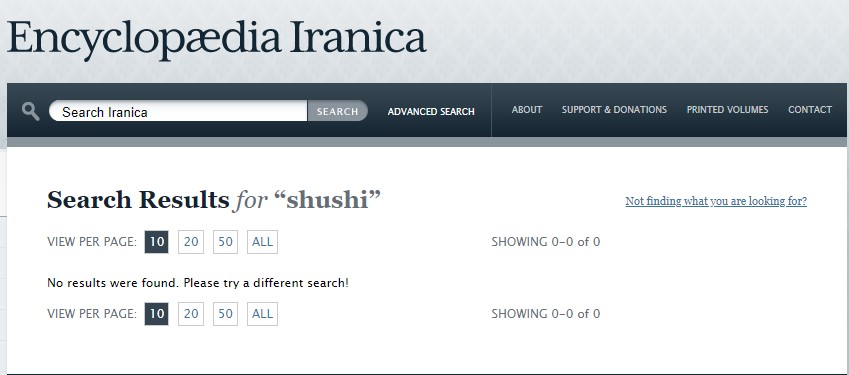
then when typing the word "Shusha", there were hundreds of results.
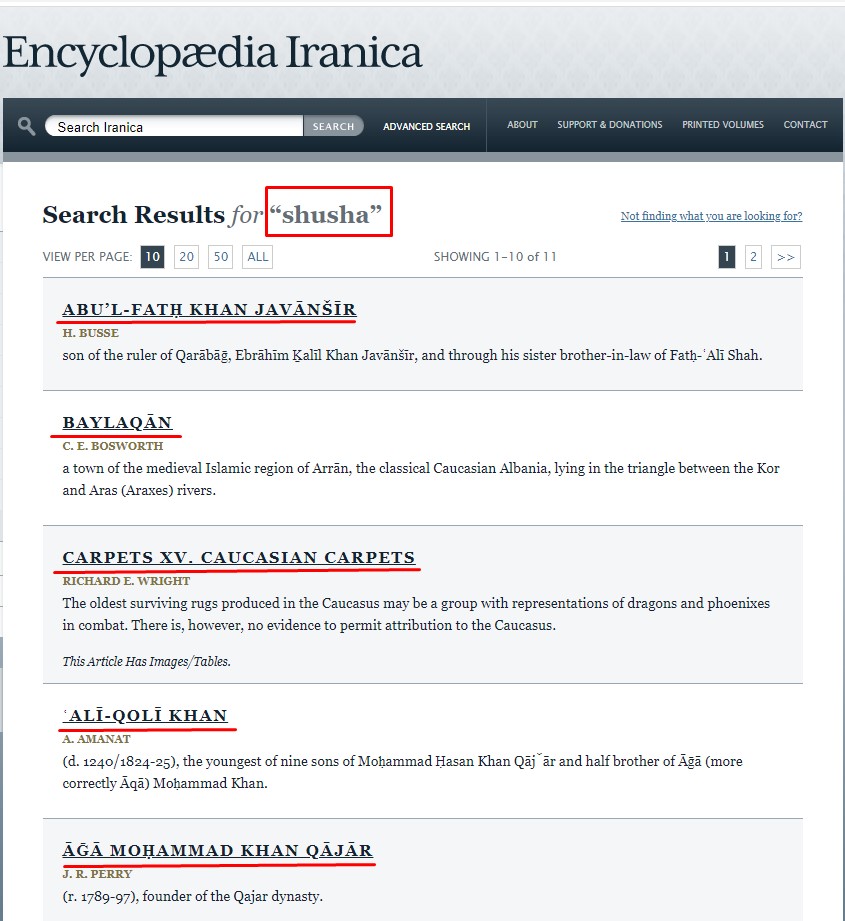
Conclusion: there are no historical or legal grounds for calling the city of Shusha as "Shushi." This is nothing but an attempt by the Armenian side to falsify the history of the Azerbaijani city.




















